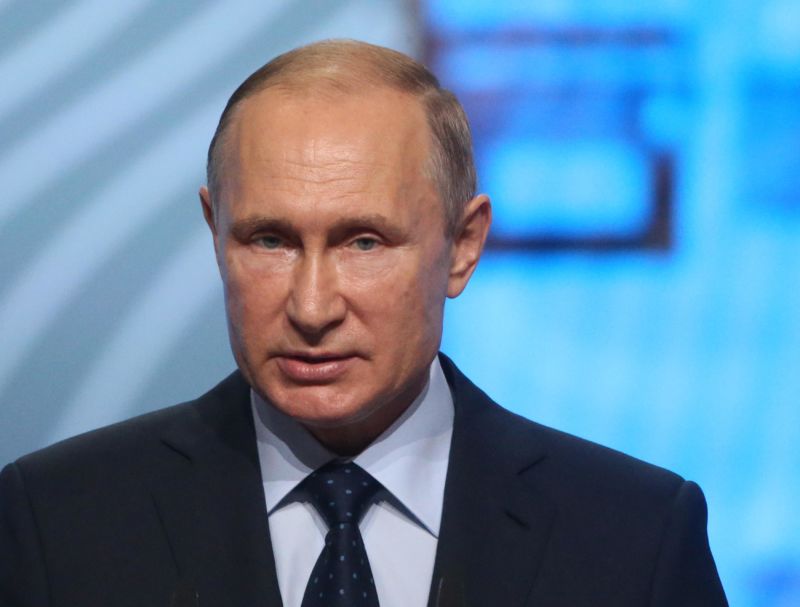How a French satellite operator helps keep Russia’s TV propaganda online

Enlarge / Russian President Vladimir Putin speaks during the Moscow Urban Forum 2018 on July 18, 2018 in Moscow, Russia. (credit: Getty Images | Mikhail Svetlov )
Not long after Russia steamrolled into South Ossetia in 2008, effectively annexing the territory of its southern neighbor, a group of Georgians banded together to set up a new Russian-language television station, a voice independent of the Kremlin: Kanal PIK.
With the help of Georgia's public broadcaster, they signed a five-year deal with French satellite operator Eutelsat to beam their station into the Caucasus. Just two weeks after they launched in 2010, Eutelsat notified PIK that they were dropped. Their space on the satellite had been promised to Gazprom Media Group, a chief pillar in Moscow's tightly controlled media system.
Kanal PIK said in a statement at the time that the saga leaves Intersputnik and Gazprom Media Group-both of which adhere to the Kremlin's editorial line-with a de facto satellite transmission monopoly over Russian-language audience." Kanal PIK would acquire a spot on another Eutelsat a year later, but the station struggled and went dark in 2012.
Read 34 remaining paragraphs | Comments